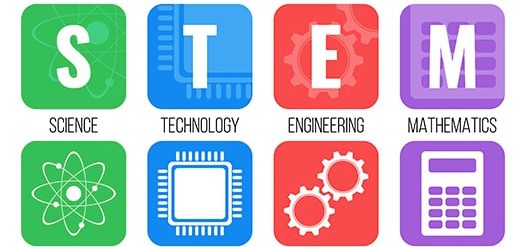
Why STEM?
In early childhood, children’s intellectual skills develop at a rapid pace. How those skills are developed, and the experiences children have when developing them, can have a tremendous impact on their future. By receiving a STEM education early on, children grasp the fundamentals of STEM subjects in an enjoyable and creative way, which will make them more likely to explore these subjects in greater depth as they get older. A STEM education opens doors in the child’s mind that encourages them to keep exploring.
Young Children are Ready to Learn
Children as young as toddlers have the capacity to engage in scientific learning. According to the National Science Teachers Association, STEM activities help young children develop and familiarity with science-based subjects that will help them expand their knowledge as they grow older. Building on these skills as they mature improves their overall intellectual ability, which will help in other areas, including social and emotional development.
STEM Builds Confidence
Our STEM program is focused on interactive learning, so when children engage in an activity, they see results. When they see results that they made happen, they realize they can do science, engineering, and more! By seeing the results of their work, whether it is building a structure out of jellybeans and toothpicks or learning about electricity by building a battery out of a lemon, children know they can be scientists or engineers because they already are.
STEM Teaches Children to Use Technology the Right Way
Technology is prevalent throughout our lives and it is crucial that children understand its powers so that they can use it to their advantage. They will have a better understanding of how technologies work and how to use them responsibly.
STEM Prepares Children for Their Future
You will see the benefits of a STEM education right away. Children beam with curiosity and want to learn more about the world around them. They become more interested in learning and will naturally become better students. And as they grow, the foundations they learned early on will support their higher-level education and help them achieve academic and professional success.
